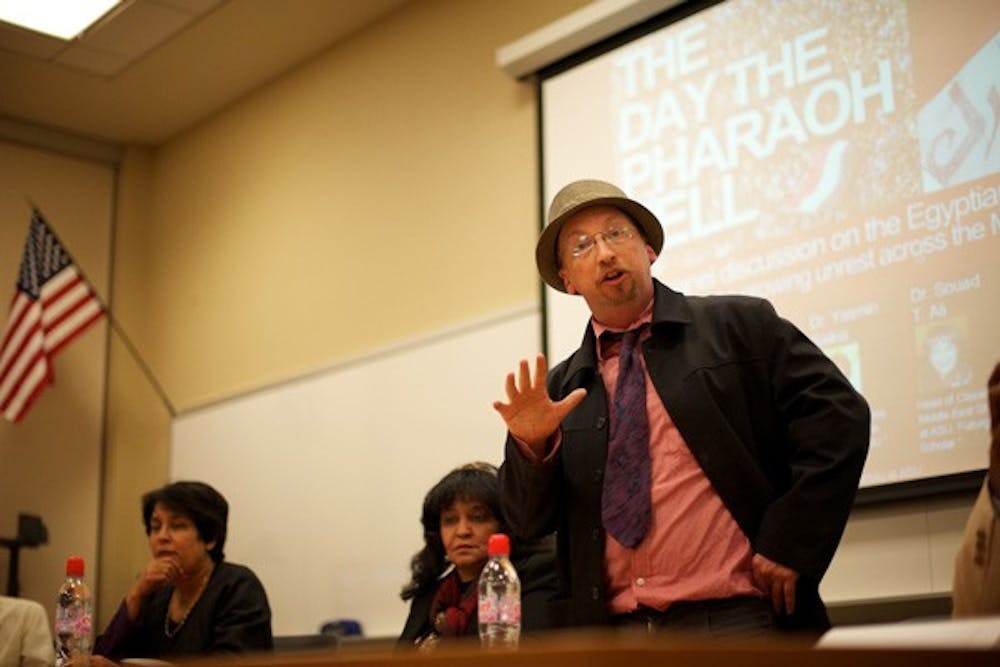Jan. 25 marked a historic day worldwide as Egypt began its revolution with millions of diverse protesters that pressed to overthrow the regime of former Egyptian President Hosni Mubarak.
The influential demand of these protesters was met on Feb. 11 when Mubarak resigned from office and his regime diminished.
More than 100 people packed into Barrett, the Honors College Cottonwood classroom Wednesday evening on the Tempe campus to participate in a panel discussion on the Egyptian Revolution and the growing unrest across the Middle East.
The five-person panel included representatives from the Islamic Studies Research Alliance at ASU and an Honor’s College faculty member.
Political science junior Cameron Bean created and coordinated the event. He spent two months this past summer living and studying in Egypt.
Bean’s hope was to “address questions surrounding the origins of the revolution, its leadership, the role of social media, the American response, the role of the Muslim Brotherhood and what lies ahead in Egypt's future.”
Mary Azer, an ASU human communications graduate who used to live in Egypt, attended the event.
“[Under Mubarak], it was divide and conquer,” Azer said. “The more that was divided, the more control was possessed.”
The panel put much emphasis on the impact of “the individual” within this revolution because of the years of oppression among the divided population in Egypt.
The panelists said Egypt’s revolution united the various socio-economic divisions within the country’s population, and it is bringing an optimistic future.
“We are now seeing an unfolding nation in our eyes,” said panelist Souad T. Ali, head of classic and Middle Eastern studies at ASU. “I think the future is definitely positive. I see a bright future.”
The protests that occurred remained secular and united the many religious and economic differences in Egypt.
“It was not driven by any particular ideologies, but here it was driven by multiple demands, saying ‘enough — we’ve had enough,’” said panelist Chad Haines, former professor at American University in Cairo.
After the panelists each gave a description of their personal studies with the revolution, there was a question-and-answer session.
Dina Ismail, a 21-year-old student at the German University in Cairo, was interviewed by Bean via Skype.
“The way Mubarak distributed things around people was wrong,” Ismail said. “The social justice wasn’t there. It’s either you were rich or you weren’t.”
Reach the reporter at ctetreau@asu.edu





